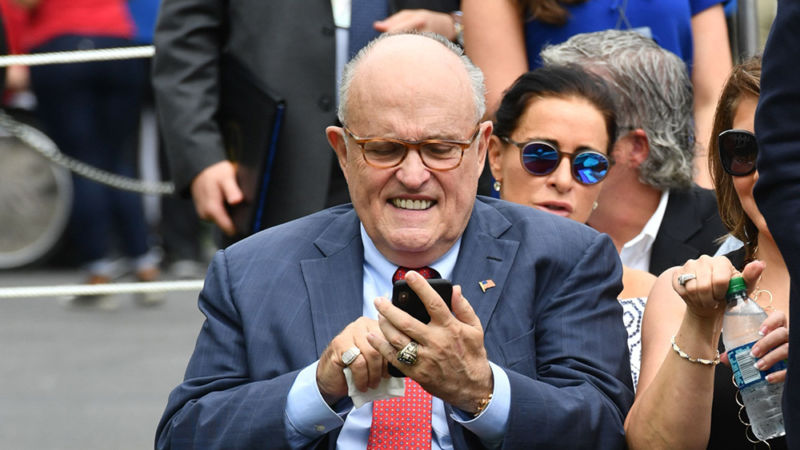

reader comments
221 with 90 posters participating
On January 12, 2017, President-elect Donald Trump named Rudy Giuliani to be his cybersecurity advisor. A month later, on February 7, Giuliani walked into a San Francisco Apple Store with a problem: his iPhone had gotten locked down after 10 unsuccessful passcode attempts, NBC reports.
iPhones are designed to become permanently inaccessible after 10 failed login attempts. Rudy—who is now Trump’s personal lawyer—had little choice but to wipe the phone and start over.
“Proceeded with DFU [device firmware update] restore and will set up the phone again from a current iCloud backup,” an Apple store employee wrote in Apple’s internal database.
Some security experts criticized Giuliani’s decision to seek help at an Apple Store for his problem.
“There’s no way he should be going to a commercial location to ask for that assistance,” former FBI agent E.J. Hilbert told NBC. Hilbert argued there was too much risk that an Apple Store employee would gain access to sensitive information on Giuliani’s phone.
Experts also questioned whether it was wise for someone with Giuliani’s access to Trump to have his data backed up on a commercial platform like iCloud, where it could be taken by hackers or malicious insiders.
Trump may have named Giuliani as a cybersecurity advisor, but evidence of Giuliani’s expertise about the Internet or digital technology is hard to find.
In a hilarious incident last year, Giuliani posted a tweet that accidentally included the URL “G-20.In” due to a missing space at the end of a sentence. A prankster registered this domain and set up a website critical of Donald Trump.
Giuliani, apparently not understanding how domains work, blamed Twitter.
“Twitter allowed someone to invade my text with a disgusting anti-President message,” he tweeted. “The same thing-period no space-occurred later and it didn’t happen. Don’t tell me they are not committed cardcarrying anti-Trumpers.”
More recently, NBC reporter Rich Schapiro said that Giuliani had twice butt-dialed him and accidentally left the reporter a voicemail message with three minutes of a private conversation about his overseas dealings, which is the subject of intensive scrutiny by congressional Democrats.


